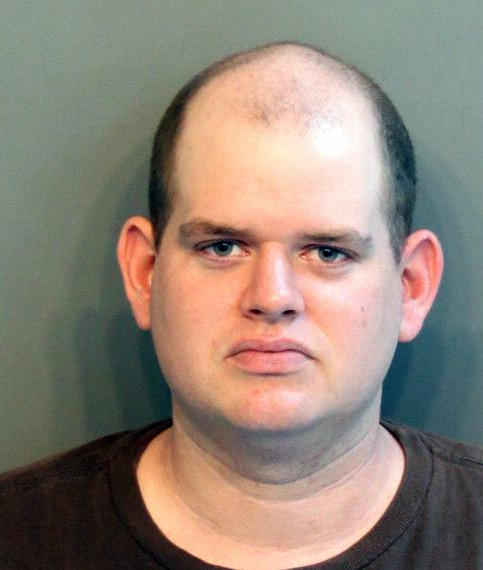A national expert on people who feign illnesses believes it's likely a Hamilton County jailer who faces nine counts of theft after he was indicted Thursday for reportedly pretending to have cancer, likely just wanted to feel loved.
Corrections Officer Dale Daniel, 26, received a total of $2,154 from co-workers who donated funds toward medical expenses. They also dipped into leave time at work to give to Daniel so he wouldn't miss days off without being compensated, said Janice Atkinson, a spokeswoman for Hamilton County Sheriff's Office.
Daniel, who has worked at the sheriff's office nearly four years, is on leave from work without pay.
Marc D. Feldman, a clinical professor of psychiatry and adjunct professor of psychology at the University of Alabama, has dedicated his study to Munchausen syndrome, where someone feigns and in some cases, actually self-induces illnesses.
Feldman has not examined Daniel.
"Typically they do it to attract attention, sympathy and concern they feel they are unable to get in any other way," he said.
"When you think about the money, at least it's not that much, compared to the extent of his efforts to mislead people," Feldman said.
Feldman has studied hundreds of cases of the disorder in the last 20 years. The most common illness faked is cancer, he said. In his book, "Playing Sick," the first chapter is dedicated to faking cancer.
"It immediately mobilizes sympathy. People know what cancer is," he said. "It's [a reaction] of concern and 'What can I do for you?' There's also something admirable if you can survive cancer. We talk about cancer survivors with a kind of nobility if they can prevail, beat it and move on."
During Daniel's employment, several family members of jailers have battled cancer and the former deputy chief of corrections, Richard Shockley, died of cancer. Jail staff rallied around Shockley's family during his last days.
People feigning illnesses are typically caught when time passes and they never seem to get worse. Authorities initiated a criminal investigation as well as an internal investigation into Daniel last month after statements were made about his illness, Atkinson said.
"People look for the opportunity to blame someone when these cases arise," Feldman said. "Sometimes the prosecution is overly rigorous. ... People look at the external case and assume that's all the case involves."
Two years ago, Keele Maynor was sentenced to three years and six months in prison followed by 10 years of probation. Maynor, a city employee, faked breast cancer and received thousands of dollars over a five-year period, according to Times Free Press archives. She also was ordered to pay $54,000 in restitution.
Feldman said the prognosis for patients with the disorder isn't typically good.
"The problem we have in trying to treat is the denial. Either they aren't willing to acknowledge they've lied to so many people for so long or they deny getting treatment," he said. "Few patients agree to treatment. Those patients [who get treated] do pretty well."
Daniel turned himself in at the jail. He did not respond to an interview request Thursday.
When Feldman was asked how the criminal justice system should handle people with the disorder, he said, "I think they should understand that in many cases this behavior stems from an official mental illness, and make their judgments accordingly."
